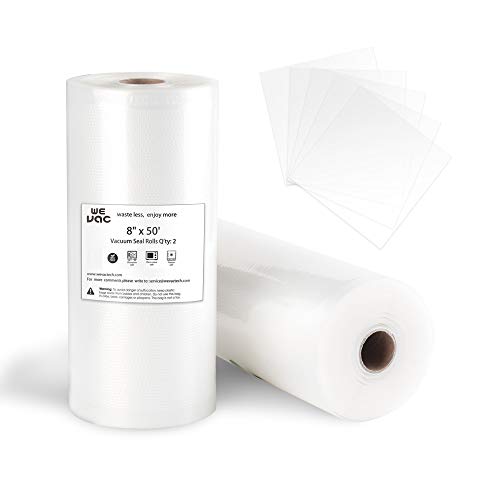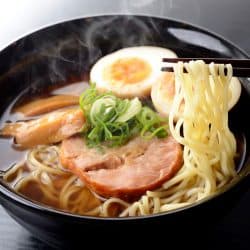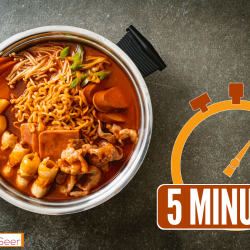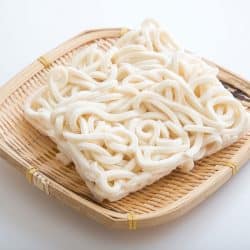Ramen is well known for its super-long shelf life. Heck, you may have seen these noodles stacked in a few nuclear war bunkers! However, that doesn't mean ramen noodles last forever. Indeed, depending on what kind of ramen you enjoy, it could have a relatively short shelf-life. If you're curious how long these noodles last, you've got to review our ramen research below.
Typically, instant ramen noodles have an expiration date between one to two years after they're manufactured. If you're using dried wheat ramen noodles, they should last for about four months before losing their flavor. Lastly, fresh ramen noodles have a lifespan of only a few weeks when stored in the fridge.
Since there are dozens of ramen varieties to choose from, not every brand has the same lifespan. Also, even if the expiration date on your noodles passes, they may still be okay to eat. Please keep reading to find out how to make the most of this convenient comfort food.
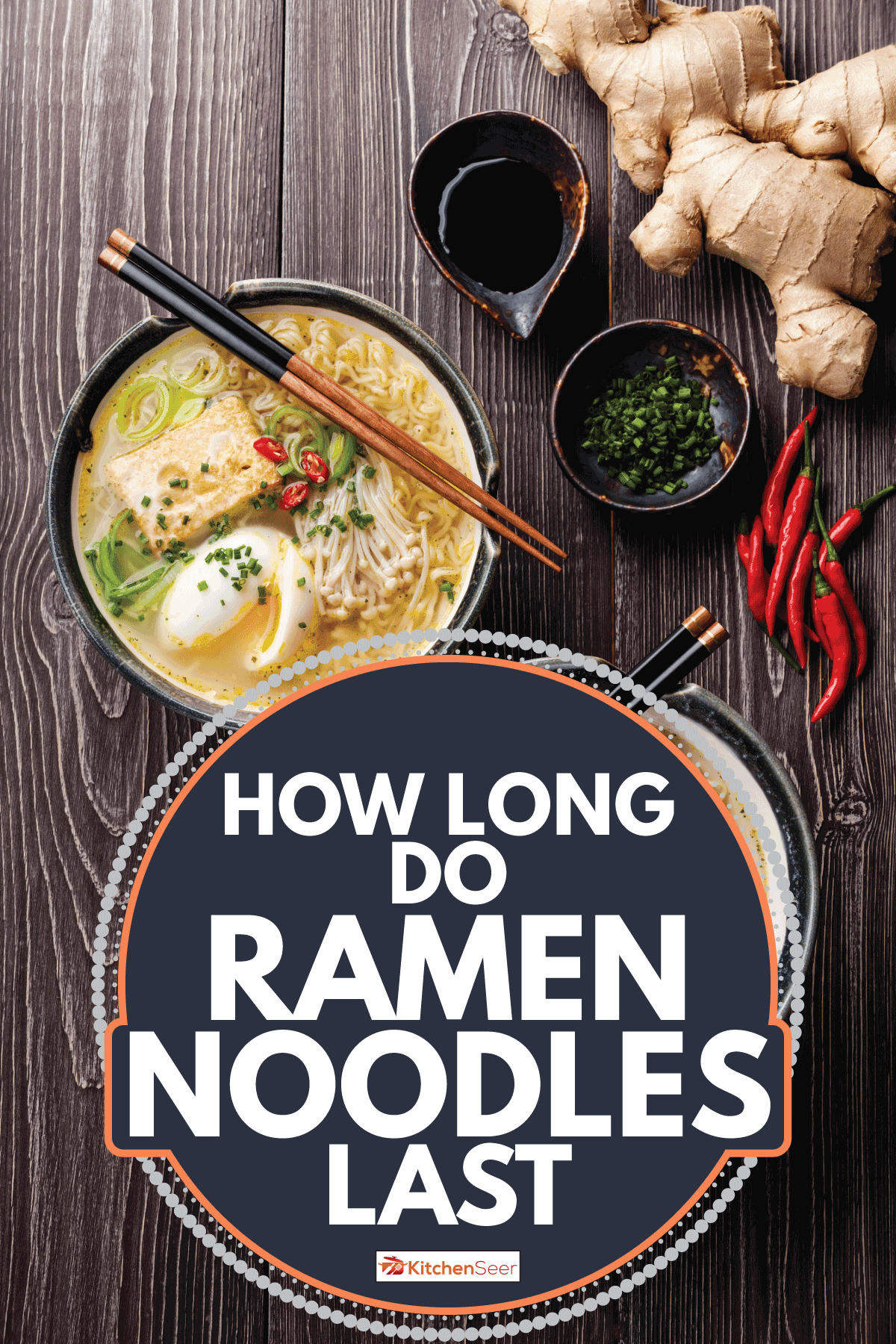
How Long Do Ramen Noodles Last On Average?
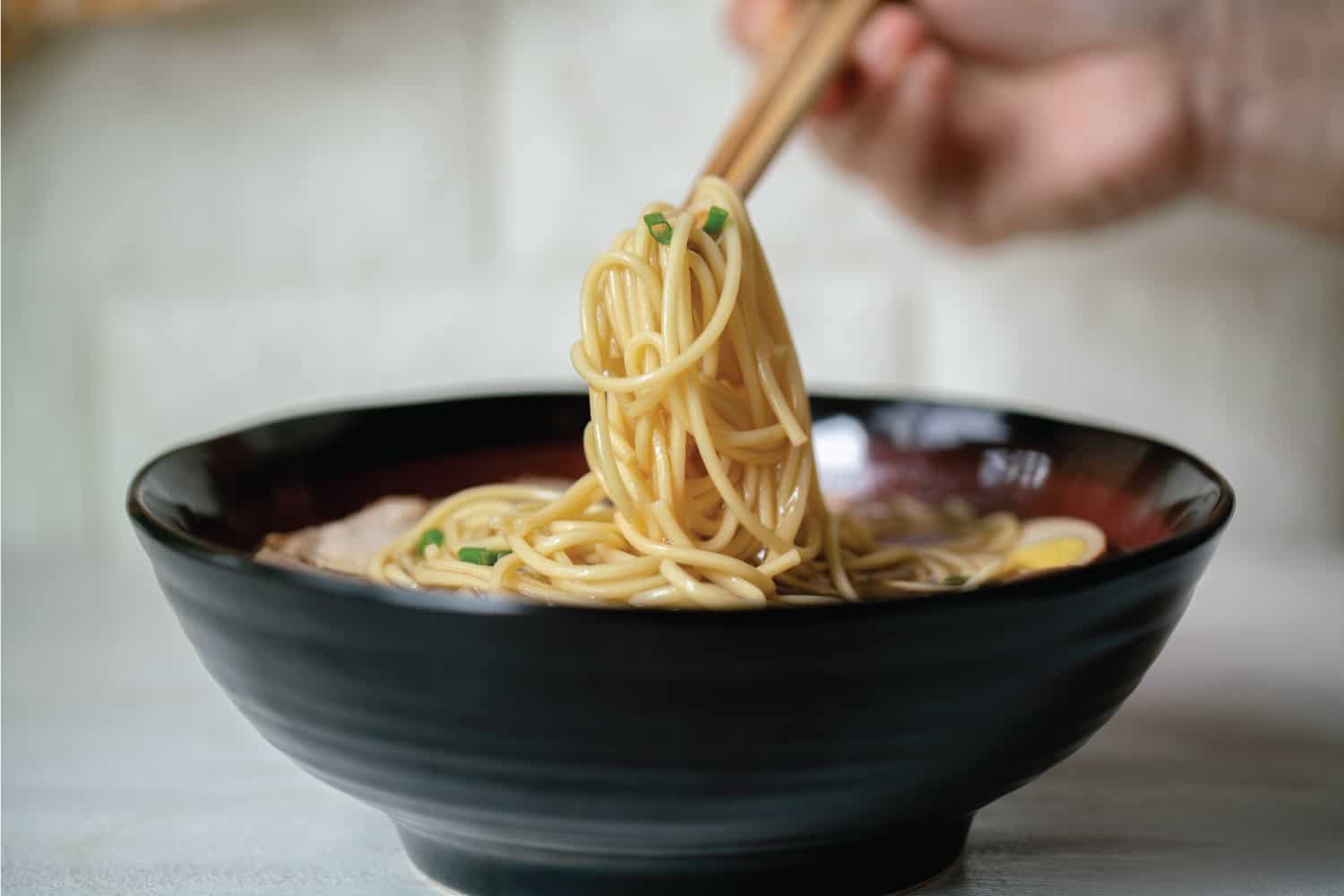
The best way to gauge how long your ramen noodles will last is to look for a manufacturer's expiration date. Generally speaking, instant ramen noodles have the longest shelf life of any ramen product. In fact, you'll often see instant ramen packets with expiration dates about one to two years away. This date could be even further away depending on how many preservatives companies pump into their noodles.
If you choose a less-processed wheat ramen variety, the shelf life will be significantly less than instant ramen. Expect these noodles to turn bad about three to four months after you buy them. Like with instant ramen noodles, it's essential to look for a manufacturer's expiration date for specific guidance.
Lastly, fresh ramen noodles will spoil way faster than any dry ramen variety. You need to store fresh ramen noodles in the fridge and use them fairly quickly. While fresh ramen could last for about two weeks in the refrigerator, it's better to cook them immediately. If you're not going to use your fresh ramen soon, be sure to wrap them in vacuum-sealed bags and toss them in your freezer.
By the way, if you're interested in making homemade noodles, you may want to check out our list of the "Five Best Pasta Machine Brands."
How Could You Make Ramen Last Longer?
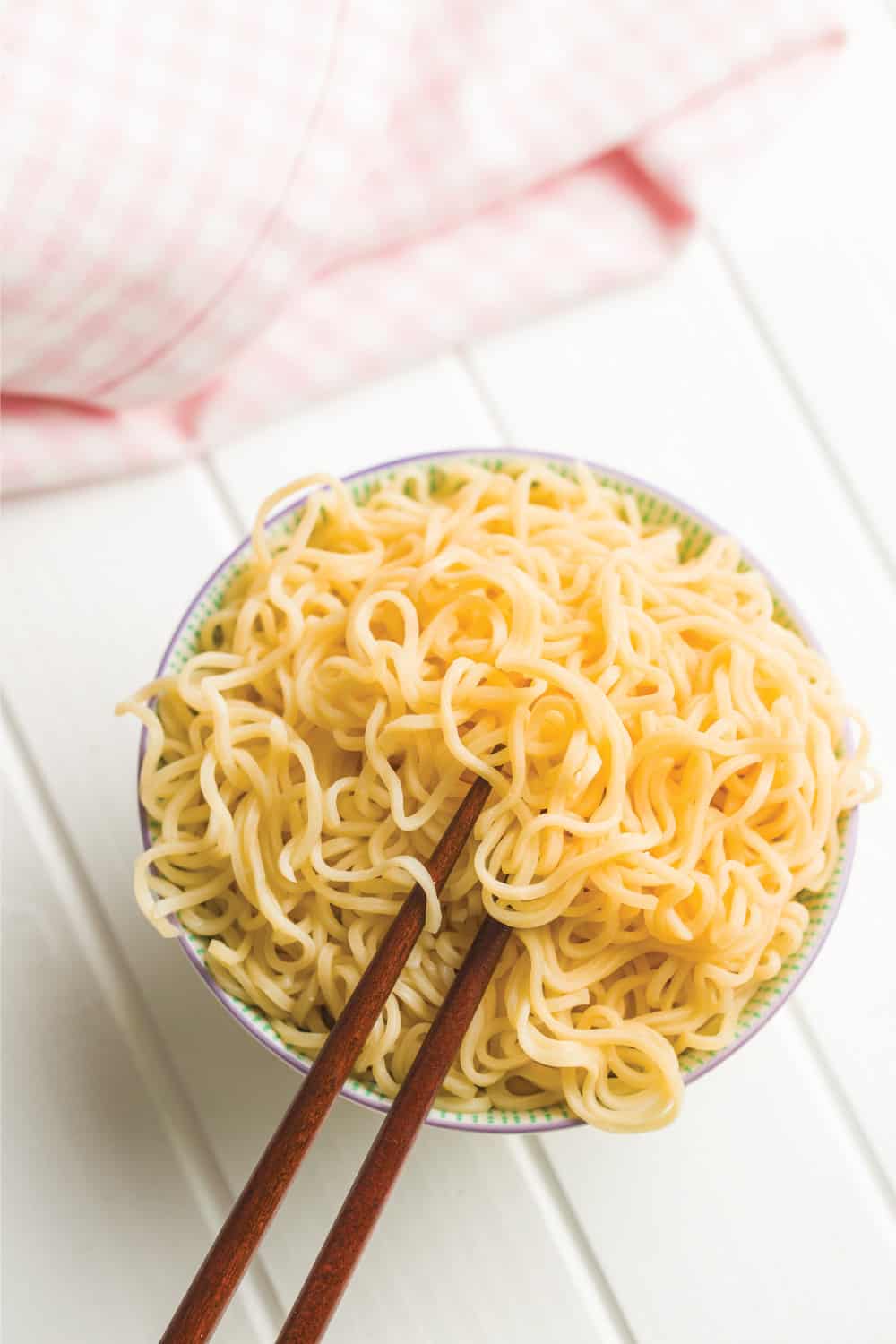
The best way to ensure your ramen noodles last for a long time is to store them in a cool, dry area. You should do everything in your power to keep moisture far away from your dried ramen. If water ever creeps into your ramen packages, there's a high chance they could get moldy.
If you're not going to eat your ramen noodles for a while, you may want to consider using an airtight container.
Find out more info on this Amazon website.
While you could freeze instant ramen noodles, most people don't find this is necessary. However, if you have fresh ramen noodles, you may want to freeze them in a vacuum-sealed bag. Just remember to thaw these noodles out in the fridge before using them.
For more details on freezer bags, click this Amazon link.
For extra info on airtight containers, we'd recommend reading this previous post entitled, "Do Airtight Containers Keep Bugs Out?"
Is It Okay To Eat Ramen Noodles After They've Expired?
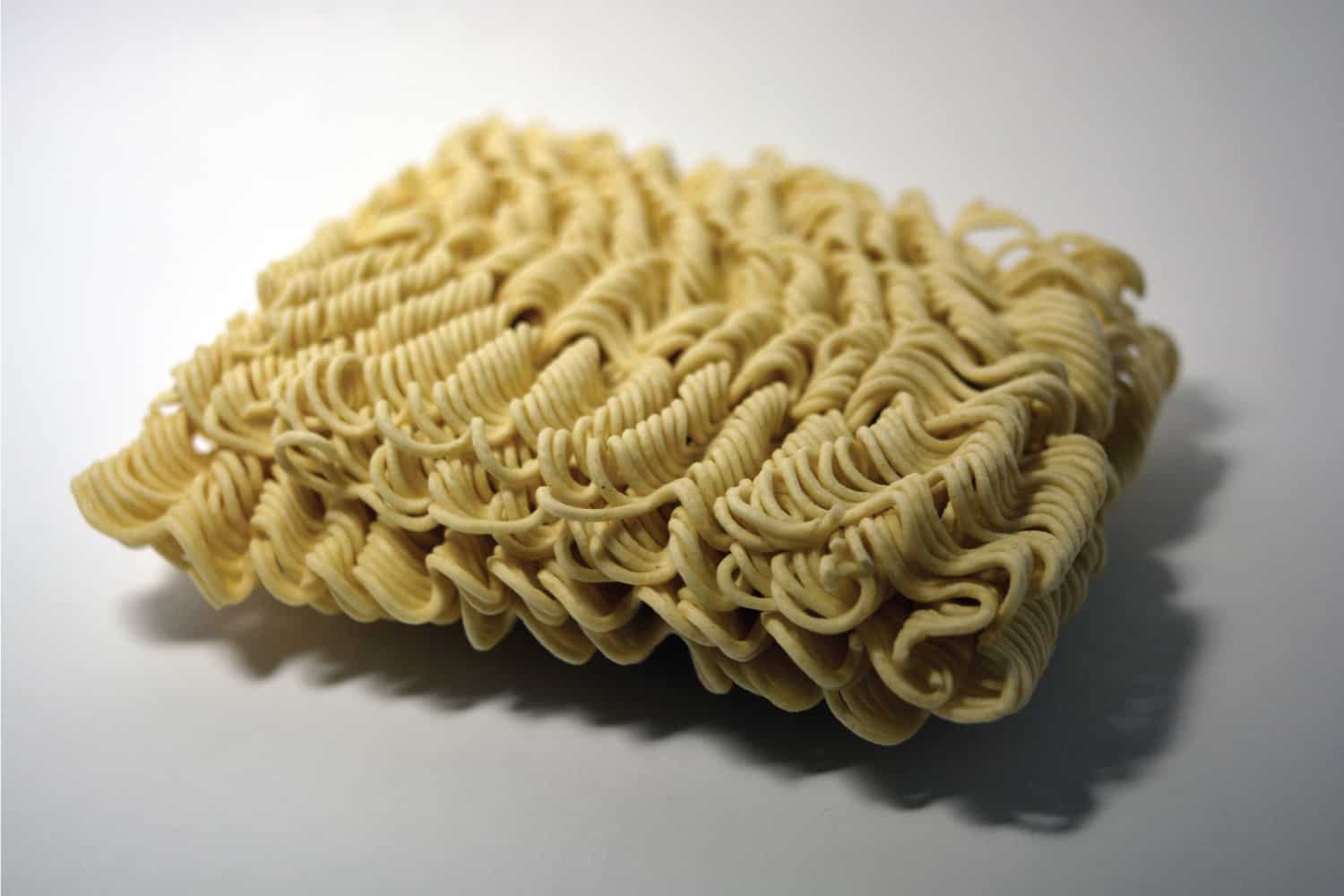
Generally speaking, instant ramen is okay to eat for about two months after its expiration date. Since wheat ramen doesn't have as many preservatives, it's best to use these dry noodles within approximately one month after they expire.
While these noodles are usually edible shortly after their expiration date, please don't expect a stellar taste. Most people who eat expired ramen say these noodles have a somewhat bland flavor.
If you're going to eat an expired packet of ramen, it's extra important to inspect your noodles. Look out for any signs of mold or pest infestation before eating them. You should also give your noodles a whiff test to ensure they don't smell funky.
As a warning: eating stale ramen noodles could cause adverse side effects. People who eat old noodles sometimes report symptoms like nausea, stomachaches, and vomiting. Be sure you give your noodles a thorough screening before making a bowl of soup.
How Can You Make Ramen Noodles Healthier?

It's no secret that ramen noodles aren't healthy. Indeed, this comfort food is every cardiologist's worst nightmare. Not only are you getting minimal nutrients from these noodles, but you're also taking high amounts of salt and questionable preservatives.
Of course, each ramen brand has a unique nutritional profile. So, the first step to making a healthier ramen dish is to compare sodium levels at your supermarket. Try to find a brand that has easy-to-pronounce ingredients and below 1,000 mg of salt.
Whichever ramen noodles you choose, most nutritionists suggest throwing away any pre-packaged sauces or "flavor enhancers" that manufacturers include with their products. These extra ingredients are usually loaded with extra salt and chemical preservatives.
To make your ramen extra healthy—and tasty!—you can experiment mixing in a few superfood sides. For instance, it's common for people to add one or two hard-boiled eggs for some extra protein. It's also not unheard of for people to use a spiralizer to make carrot or zucchini noodles and mix them into their ramen.
Find out more about this Spiralizer at this Amazon link.
If you want to supercharge your ramen, consider adding some superfoods like spirulina powder or cooked spinach into your dish. For those who aren't aware, spirulina is a type of algae that's considered to be one of nature's best detoxifiers.
Find out more about Organic Spirulina at this Amazon link.
If you're into gut health, you may want to add probiotic-rich foods like Korean kimchi or Japanese natto beans to your ramen noodles. Just be sure to add these ingredients after your ramen has cooled down. The beneficial bacteria in both of these products can't survive extremely hot temps.
Click this Amazon link for more details about Kimchi seasoning.
Is It Okay To Eat Ramen A Few Times Each Week?
Sadly, recent studies suggest eating ramen more than twice per week isn't great for your health. Researchers at Baylor University tracked adults who did or didn't eat ramen twice per week. The results were clear: people who ate two servings of ramen every week had a higher risk of complications like a stroke or heart attack.
Of course, the quality of ramen noodles varies from brand to brand, and you could enhance your dining experience with healthful additions. However, ramen noodles always tend to have above-average sodium levels and minimal fiber, both of which aren't great for long-term health. In fact, The Lancet recently released a report that suggested the worst diets on earth are also the saltiest.
While it's okay to eat an occasional bowl of ramen, it's not a great idea to make it a routine. Try your best to limit your ramen meals to four times per month. If you like to eat ramen more frequently, you should invest in higher-quality products and mix your noodles with healthful sides.
For Delectable Ramen, Always Look At The Expiration Date!
Dried ramen noodles may last for a few years, but they won't store indefinitely. You should always check the expiration date on your ramen packets and keep them in a reliably cool, dark place. You may also want to invest in a high-quality airtight container to preserve your ramen even longer. Please inspect your ramen for funky odors or mold before dropping them in hot water.


